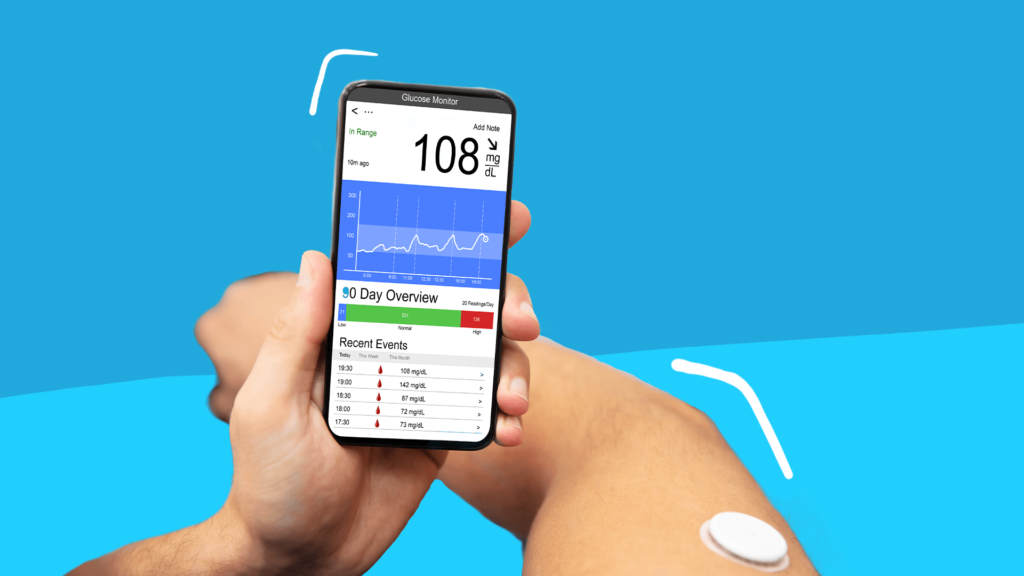Collaborative Healthcare for Comprehensive Diabetes Management
Diabetes care is evolving with better drugs, simpler glucose monitoring, lifestyle focus, and coordinated teamwork within healthcare.
Dr. Cecilia Lozier, Chief of the Division of Endocrine and Diabetes at Baystate Health, emphasizes the significance of a team approach in Comprehensive Diabetes Management.
This team typically involves primary care providers or diabetes specialists, guiding patients to the right medications for personalized needs. Additionally, registered dietitians or certified diabetes educators play a pivotal role, empowering clients towards healthier lifestyles through incremental but impactful steps.
Tip: Please fill out the form if you or a friend would like more information on CGMs.
Navigating the Diabetes Journey
Dr. Lozier underscores the role of primary care providers in initiating and sustaining Comprehensive Diabetes Management. They tailor medication to individual needs, ensuring optimal health and safe blood sugar levels.
Moreover, they oversee preventative care, monitoring vital body parts susceptible to diabetes complications such as eyes, heart, kidneys, and feet. Managing blood sugar levels and promptly addressing diabetes-related complications are key to a healthy life with diabetes.
Diabetes educators, integral to the healthcare team, offer extensive education and guidance. They assist in lifestyle modifications, personalized diet plans, blood sugar monitoring, and understanding the impact of food and other factors on sugar levels.
Must Read CGMs in noncritical care hospitals optimizes glycemic control
Specialized Diabetes Care
In complex cases, primary care providers refer patients to specialists like Dr. Lozier at Baystate Endocrine and Diabetes.
These specialists aid patients in stabilizing their diabetes, providing Comprehensive Diabetes Management and education to better comprehend and manage their condition. Once stabilized, care transitions back to primary care providers for continued monitoring and evaluation.
Don’t miss the Guide about Wegovy Dosage Guide: The Best Way For Weight Loss
Understanding Diabetes and Its Management
Diabetes manifests when blood glucose levels remain high due to insufficient insulin production or utilization (Type 1 or Type 2 diabetes).
Recognizing symptoms like frequent urination, extreme hunger, weight loss, fatigue, and irritability is crucial. Uncontrolled diabetes leads to various complications affecting the heart, kidneys, vision, and more.
Advanced Diabetes Management Tools
Continuous glucose monitoring, exemplified by Dexcom G7 and Abbott Freestyle Libre 3, revolutionizes diabetes care. These sensors provide continuous glucose readings, eliminating the need for finger pricks, and offer invaluable insights into body responses to food and lifestyle changes.
Innovations in Medication
Recent medications like GLP-1 agonists and SGLT-2 inhibitors not only improve blood sugar but also shield the heart and kidneys from diabetes-related impact.
GLP-1 agonists such as Ozempic, Trulicity, and Victoza, trigger insulin release and aid in weight loss for Type 2 diabetes patients. SGLT-2 inhibitors assist in sugar release via urine and benefit kidney and heart health.
Mounjaro, a novel GLP-1/GIP agonist, shows promising effects on blood sugar management and weight loss, signaling a new avenue in diabetes medication.
Also, read about Tandem Source Unveils Unprecedented Capabilities in the US
Empowering Comprehensive Diabetes Management
Dr. Lozier urges engagement with healthcare teams, active involvement in monitoring diabetes, and adopting tailored medication regimens.
Establishing relationships with diabetes educators and leveraging continuous glucose monitors empower individuals to make informed, healthy choices, fostering a fulfilling life with diabetes.
Anita Fritz, Senior Specialist for Public Affairs and Community Relations at Baystate Franklin Medical Center.


